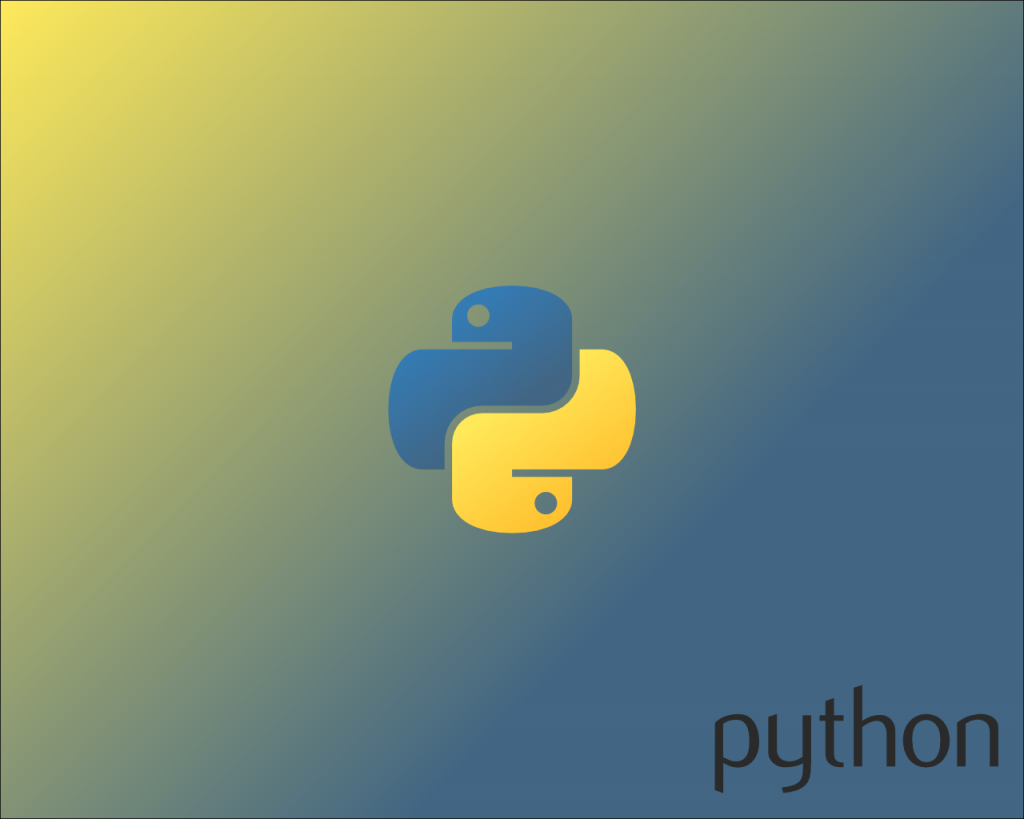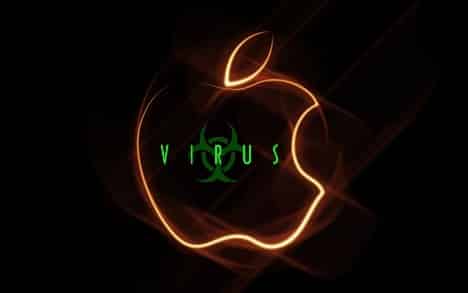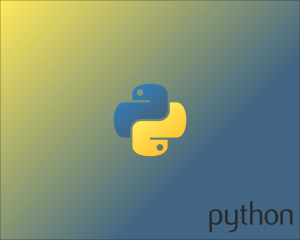
Coding in Python is not hard, in fact – it has been acclaimed as the easiest programming language to learn for a long time. It is a good starting point if you’re looking to get into web development, even game development – as there are so many resources for building games with Python. It’s one of the ways of learning the language quickly.
Many programmers have used Python as the beginning of their journey, to later pick up languages like PHP and Ruby. It’s also one of the hottest web programming languages in 2014, and highly recommended to learn. But, how to learn Python? Where to go to begin learning?
I’m here to solve that problem for you, as I’ve myself relied on many of these resources to learn programming, and begin development. Just a friendly tip and word of advice, the best way to learn is by doing – and these books, resources are here only to guide you in the right direction.
It can be EXTREMELY frustrating to begin learning, but once you get the basics down – it comes to you naturally, and you’re building things without thinking about it.
Learn Python the Hard Way
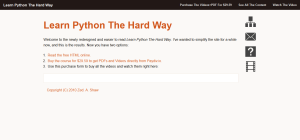
The absolute easiest way of learning Python is by completing this book. You’ll be amazed at how easy it is to pickup the basics, and you get that sense of real learning process, acquiring new knowledge as you move forward. I also learned that it is very encouraging to try and create your own programs.
Those programs might be small, but they’ll definitely help you better understand the language and how the syntax works. It’s highly popular, and so if you ever get stuck, it’s more than likely that there are several answers available on sites like StackExchange, just do a Google search when you need a solution or help.
You’ll learn how to:
The HTML online version is completely free, and it’s also what most people use – I do encourage you to donate / purchase the full book, as the author has put a lot of effort into making it happen, and the premium version also includes videos – if you find learning from videos a lot easier.
The Python Challenge
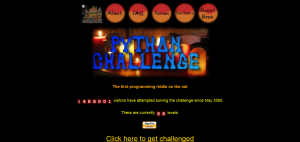
It might be a little tricky to get this one going, if you’ve never in your life programmed before, but it goes together well with the above book, and you should definitely give it a go. There are 33 levels (puzzles), which can be solved by using your Python programming skills.
Millions of people have attempted to solve this, and even if you’re unable to complete all of the levels, you’ll have learned quite a few new things – especially in the field of critical and sharp thinking. Your brain is going to overheat, but that’s programming!
Learn Python Programming @ Codecademy
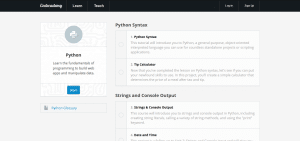
You’ll find that many ‘elite’ programmers will tell this interactive platform off, but that’s not the point. What we want is to see / test how the basic syntax of a programming language works, and what can be done when its combined with functions, other than the usual ‘Hello World!’ we’re printing.
In this Codecademy course you will learn how to work with files, how to use loops and how they work, what are functions and what they’re good for. It’s all very basic, and very beginner friendly. There is community forums available for those who need help, but usually everything can be understood from within the dashboard you’re working with.
You won’t need to install any tools, and the only thing you might need is a Notepad++ editor, to rewrite the code on your own computer – for gaining better understanding of it. It’s what I do, and I recommend it to everyone who wants to learn programming, be it Python or any other language.
Intro to Computer Science @ Udacity

Udacity offers a great course at free of charge, for introducing yourself to the Python programming language and learning more about search engines, and how to build your own little web crawler. It certainly is a fun course to take part of, and it offers extensive guides and community support to help you along the way.
You can enroll as premium student to receive guidance from the instructors, and gain a certificate by the end of the course – or you can start the free courseware to get going right away, unfortunately – the premium full course is at limited capacity, and so you have to signup for a waiting list.
In total, there are 11 classes, all of which are thoroughly explained and documented. Go to the official page to learn more and find more answers to the questions you might have.
Google’s Python Class

Google itself is powered by a lot of Python code, and so it only makes sense that they support the community and want to help others learn the language. This is one of my favorite guides / classes I’ve ever viewed, it’s really detailed and the videos are very beginner friendly and also entertaining to watch.
Just watch a couple of minutes of the first lecture above, to get a better sense of whether you like the instructor or not, and then perhaps start learning! The official Python Class page has all of the links to exercises and examples.
A Byte of Python
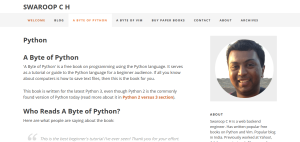
Very similar to LPTHW, but offers a slightly more in-depth introduction on how to get your perfect setup up and running, and how to take the first steps so you don’t overwhelm yourself. It has been recognized as one of the best beginner guides for those who want to learn Python, definitely check it out and see the first few chapters to figure out whether you like the style of writing.
Think Python
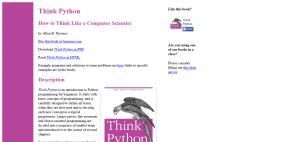
Think Python is an introduction to Python programming for beginners. It starts with basic concepts of programming, and is carefully designed to define all terms when they are first used and to develop each new concept in a logical progression. Larger pieces, like recursion and object-oriented programming are divided into a sequence of smaller steps and introduced over the course of several chapters.
You can find a lot of the example code by following this link, it’s one of the most professional books and have a strict “teaching you computer science” policy. It costs nearly $40 to purchase, but you can download the PDF and HTML versions for free, I’d definitely take advantage of this – if I was to learn Python from the beginning.
Python at Learnstreet

You’d think that a site offering programming courses would know how to add a HTML title for their pages, lol. In all seriousness though, Learnstreet offers a great interactive programming course for learning Python, its beginner friendly as everything in this post is – and if you ever run into problems, its best to Google them.
What I like about Learnstreet is the amount of hints / explanation you get with each of the exercises, right within the same dashboard that you write your code in.
The New Boston

If you’re more like someone who likes to learn from video tutorials, I’m not sure there is anything as comprehensive as The New Boston video tutorial series for learning Python, and many other programming languages as can be seen on their YouTube channel.
The only downside is that there is no real material for you to read or download, and it all comes in video format. I’m the type of programmer who cant withstand having to watch videos all the time, but that might clash with my opinion with the Google’s Python class – which was pretty sweet.
Python @ Coursera
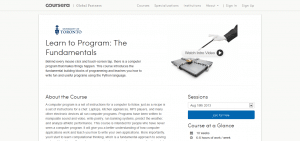
This course is intended for people who have never programmed before. A knowledge of grade school mathematics is necessary: you need to be comfortable with simple mathematical equations, including operator precedence. You should also be comfortable working with simple functions, such as f(x) = x + 5.
It should be completed with ten weeks, spending around ten hours of work on the tasks each week. If you’re able to find the time to do it, and not overwhelm yourself – I do recommend signing up and completing this course, it will only strengthen your knowledge, and it can be combined with any of the above mentioned resources for better understanding.
Where to Learn Python?
It turns out that I’ve tried most of these courses myself, I was actually hoping there would be more resources and links to add to the list, but we’ve just taken a look at all of the major ones and there is so much stuff and new things you’re going to be learning about.
What is your experience with programming, and what are you looking to do with your newly found skills? I think that anyone who wants to build their expertise, should first acknowledge what they want to build and then work on that project until it gets done. The beauty of doing that is that you’ll learn specific things, and recreating similar projects will be much easier.
Interactive platforms are cool, but they’re not yet ready to replace books or courses provided and narrated by professionals. I wish you the best of luck with learning Python, and please – if you’ve got any questions to ask, do so in the comment box.
